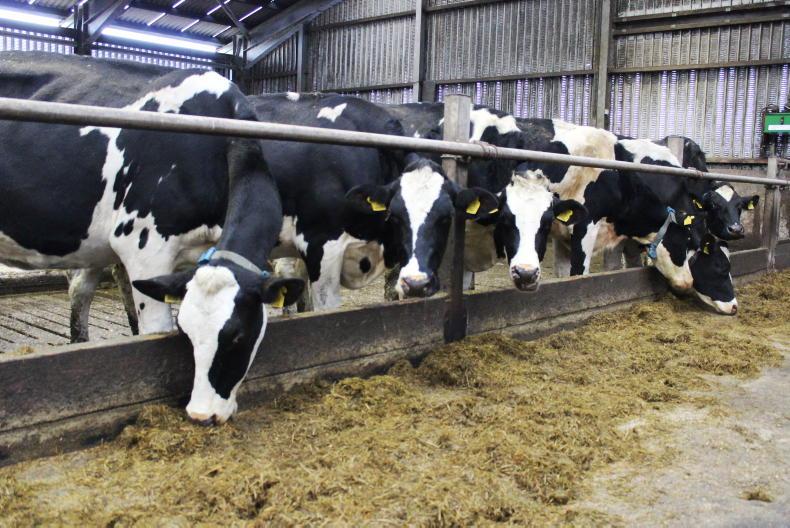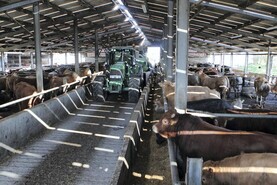Despite potential new entrants to dairy facing challenges around planning applications, spiralling prices for farm buildings, and break-even production costs likely to exceed 30p/l, milk processors report that they have had
an upturn in enquiries in recent months.
The interest has come from other livestock farmers wishing to convert from cattle and sheep enterprises.
On enquiry, a DAERA spokesperson confirmed that for the year up to 13 December 2021 the Department has issued 46 new milk registrations, historically known as milk licences.
This equals the number approved in 2020, is six ahead of the 2019 figure, and is significantly more than the 30 registrations approved in 2018.
However, the number of milk registrations does not directly correspond to the actual number of new entrants commencing milk within the same year.
Many farmers with approval in place will transition into dairying over a one- to two-year period for a variety of reasons such as finance, infrastructure and purchasing stock.
New entrants
The number of new entrants who actually started milking in 2021 is just over 40, which is similar to 2020, but down slightly from 2019 levels when approximately 50 new suppliers were taken on by processors. It is understood that Lakeland Dairies accounts for almost 50% of new entrants, followed by Dale Farm and Glanbia Cheese.
Dale Farm had a temporary freeze on new recruits during 2020 and 2021, following a surge of applications from new dairy startups in recent years on the back of a 3p/l bonus scheme.
However, from September of this year, the co-op has again considered enquiries.
But with co-ops close to processing capacity, they are extremely selective when taking on new suppliers.
Most who do accept a new supplier are merely offsetting farmers’ exiting milk production in a particular region, and/or already have a high number of existing suppliers in the area, so there is a well-established milk collection route.
Read more
Money Mentor: Ulster Bank's customers and farmers should consider their banking options
Positive week for dairy farmers and co-ops
Despite potential new entrants to dairy facing challenges around planning applications, spiralling prices for farm buildings, and break-even production costs likely to exceed 30p/l, milk processors report that they have had
an upturn in enquiries in recent months.
The interest has come from other livestock farmers wishing to convert from cattle and sheep enterprises.
On enquiry, a DAERA spokesperson confirmed that for the year up to 13 December 2021 the Department has issued 46 new milk registrations, historically known as milk licences.
This equals the number approved in 2020, is six ahead of the 2019 figure, and is significantly more than the 30 registrations approved in 2018.
However, the number of milk registrations does not directly correspond to the actual number of new entrants commencing milk within the same year.
Many farmers with approval in place will transition into dairying over a one- to two-year period for a variety of reasons such as finance, infrastructure and purchasing stock.
New entrants
The number of new entrants who actually started milking in 2021 is just over 40, which is similar to 2020, but down slightly from 2019 levels when approximately 50 new suppliers were taken on by processors. It is understood that Lakeland Dairies accounts for almost 50% of new entrants, followed by Dale Farm and Glanbia Cheese.
Dale Farm had a temporary freeze on new recruits during 2020 and 2021, following a surge of applications from new dairy startups in recent years on the back of a 3p/l bonus scheme.
However, from September of this year, the co-op has again considered enquiries.
But with co-ops close to processing capacity, they are extremely selective when taking on new suppliers.
Most who do accept a new supplier are merely offsetting farmers’ exiting milk production in a particular region, and/or already have a high number of existing suppliers in the area, so there is a well-established milk collection route.
Read more
Money Mentor: Ulster Bank's customers and farmers should consider their banking options
Positive week for dairy farmers and co-ops






 This is a subscriber-only article
This is a subscriber-only article










SHARING OPTIONS: